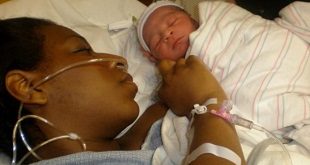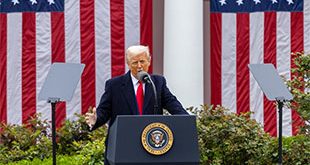
Why is the President insistent on a seemingly winless war?
Kampala, Uganda | IAN KATUSIIME | What does President Yoweri Museveni have against two young opposition legislators; Muhammad Ssegirinya and Allan Ssewanyana so much as for him to revive his unpopular stance on bail? It is something that has vexed the public and the Parliament which the President is once again putting under pressure to revise bail for suspects facing capital offences.
A meeting at Kololo Ceremonial Grounds with his party caucus over the issue did not yield much with many staunchly pro-Museveni MPs opposing their leader on the issue instantly. “It must be life for life. That is the way our people in the village understand justice.”
Museveni’s declaration to fight bail politically is what has activists and politicians triggered. He has not brought up the issue before his party members who ordinarily vote with him hook line and sinker.
A day after Museveni met with his party caucus, the two opposition legislators; Ssegirinya and Ssewanyana, were slapped with fresh murder charges- adding to the mystery of the witch-hunt the two National Unity Platform (NUP) MPs have faced for weeks now.
For years, Museveni has argued against bail albeit with little success. For the times he was so pronounced on scrapping bail, it was because there was a high profile murder case in the news cycle but this time, there is a political dimension to it. A spate of killings in Masaka where the government has charged two MPs, whose constituencies lie out of the area haunted by killings, with murder has left even National Resistance Movement (NRM) government sympathisers in an awkward position.
“Me I believe in the old law of Moses and Abraham; an eye for an eye,” Museveni has previously stated, adding a mix of his conservative views as a justification for removing the constitutionally guaranteed right of bail.
NRM MPs emerging from the caucus spoke out against the party chairman’s wishes. “We totally disagree with this position. You saw how the former Director General of ISO (Kaka Bagyenda) was saying they are framing him,” David Kabanda, Kasambya County MP, an avowed Museveni loyalist said. “We have so many enemies in this government.”
Daniel Ruhweza, a constitutional law lecturer at Makerere University, says the continued bail stance by Museveni is unfortunate. “Every politician is a potential accused person in a court of law,” he told The Independent. “Bail is so fundamental that every time someone is being granted bail, there are careful considerations made.”
Ruhweza argued that Museveni’s stance is one that encourages mobs to kill suspects; where once somebody is accused they are deemed guilty outright. He cites Article 23 of the constitution of Uganda which lays out protection of personal liberty. “When you scrap bail, you are taking away one of the maxims of natural justice,” he added, “You cannot scrap bail without changing the whole rubric of criminal law.”
Museveni has re-echoed his desire for bail to be scrapped at a time when the Ugandan political opposition is flirting with the International Criminal Court (ICC) based in The Hague, Netherlands. In January, opposition leader Bobi Wine and Musveni’s key opponent in the 2021 presidential elections, asked the ICC to investigate Museveni and his government over human rights abuses in the country.
In May, Museveni’s son, Lt. Gen. Muhoozi Kainerugaba, was named in a complaint among other senior Ugandan military commanders, in a file at the ICC over abductions of Ugandans by the military. The ICC has jurisdiction to hear war crimes, genocide and crimes against humanity committed in 123 countries, including Uganda which was one of the first signatories to the court.
The ICC does not have a clear position on bail although judges in the ICC Appeals Chamber ordered for the release on bail of former Ivorian president Laurent Gbagbo after the court acquitted him of charges of committing crimes against humanity. This was after the court indicted him for fomenting post-election violence in Ivory Coast in the 2010-2011 period.
Ruhweza also shed light on why bail remains necessary. “Our prisons are bursting at the seams. It takes three to four years for a case to conclude.” He also said that the fact granting of bail has an application process is more reason why it is sacrosanct: Issues of whether one is a first time offender, their medical history, substantial sureties et al. “There are many reasons why someone cannot stay in jail; it could be health…if someone has been in jail for 180 days and there is no trial, why should they be kept waiting?”
He adds that no one is free from an accusation or an arrest. “It is unfortunate that this is happening at a time two MPs are facing charges of murder and terrorism but bail must not be denied.”
Another lawyer who preferred anonymity said Museveni’s proposal to scrap bail is at odds with the three tenets that underpin Uganda’s criminal justice system; the principle of legality, presumption of innocence, and the principle of the burden of proof.

Court rulings
Elison Karuhanga, a government leaning lawyer told The Independent that President Museveni’s take on bail is not so different from previous court rulings on the matter. He cites two rulings of Foundation for Human Rights Initiative (FHRI) versus the Attorney General in 2008 and 2018 by the Constitutional and Supreme Court.
FHRI petitioned the Constitutional Court (Constitutional petition 20 of 2006) seeking to nullify certain sections of the following statutes; the Trial on Indictment Act, the Magistrate’s Court Act, the UPDF Act and the Police Act. The petitioner argued that the above statutes were imposing restrictions, and limitations on a person’s right to liberty, freedom of movement, the right to a fair and speedy trial and the presumption of innocence.
The petition was more pointed on the Magistrate’s Court Act whose sections; 75 and 76, excluded certain offences from the grant of bail arguing that this was infringing on the Constitutional right to liberty and the right to bail.
The petition of FHRI also stated that the various sections were inconsistent with Articles 20, 23(1), 23(6), 28(1) and 28(3) of the constitution.
In the ruling delivered on March 26, 2008, the Constitutional Court in one section of its judgment concurred with Museveni’s sentiments. “With regard to section 75 (2) of the Magistrate’s Court Act, it is not correct to say, on the evidence before court, that it contravenes the provisions of Article 23(6). The accused’s right to bail is not absolute”, the judgment written by Laetitia Mukasa-Kikonyogo, then deputy chief justice read.
“It has to be enjoyed within the confines of the law. There has to be a constitutional balance of everybody’s rights. Denial to grant bail by section 75 (2) does not contradict the accused’s inherent right of innocence.”
The above sentence is what a minority of lawyers cite as a sliver of legal backing that the President may use in his almost lone quest to have bail expunged from the judicial system.
However the five justice coram granted the petition with the following declarations: that Section 16 of the Trial Indictment Act was null and void because it contravened Articles 20, 23(6) and 28 of the Constitution.
The court also nullified Section 76 of the Magistrate’s Court Act citing inconsistency with the same aforementioned Articles.
Due to dissatisfaction from the Constitutional Court ruling, FHRI filed an appeal in 2009 in the Supreme Court challenging the judgment of the constitutional Court to have the remaining sections declared null and void. FHRI wanted sections 14(1), 15 1(1) (2) (3) of the Trial on Indictments Act declared null and void too.
The Supreme Court in its judgment agreed mostly with the Constitutional Court ruling that only Section 16 of the Trial Indictment Act was inconsistent with the constitution. The convoluted Section 16 was titled ‘Restriction on period of pretrial demand.’
According to some sources, Museveni first spoke out on bail early in the nineties at an annual general meeting of Uganda Law Society.
****
 The Independent Uganda: You get the Truth we Pay the Price
The Independent Uganda: You get the Truth we Pay the Price



